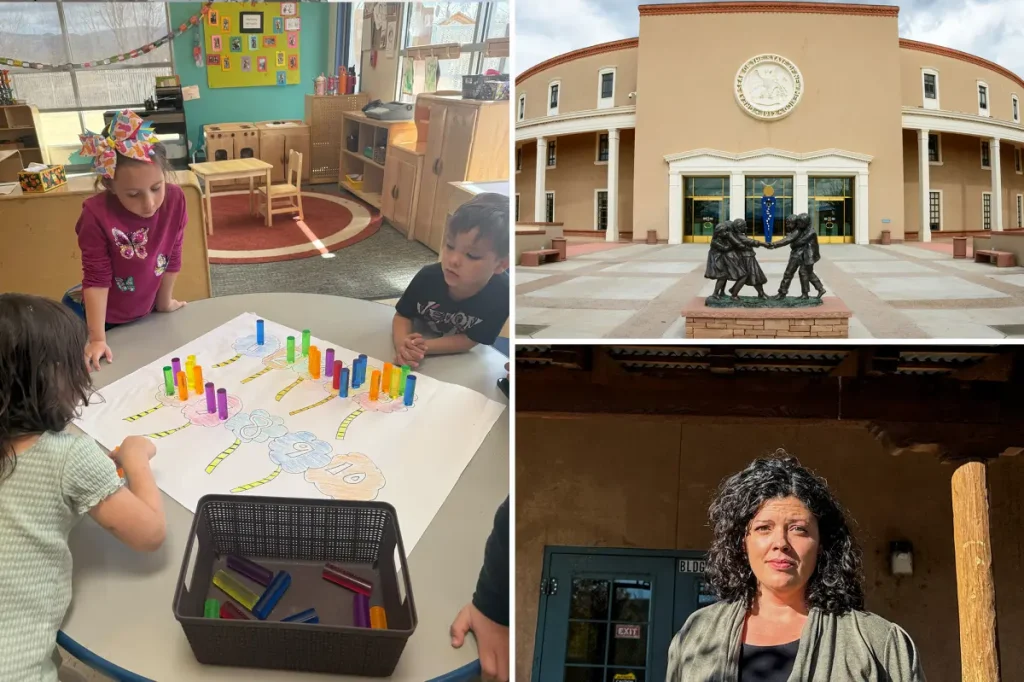New Mexico Pioneers Free Child Care for All Residents: A Revolutionary Step Forward
In a groundbreaking move, New Mexico has become the first state in the nation to offer universal free child care to all its residents, regardless of income. Launched on Saturday, this ambitious program represents the culmination of years of effort since Governor Michelle Lujan Grisham and the state legislature created the Early Childhood Education and Care Department in 2019. Families across the state can now receive vouchers covering both public and private child care fees for children up to age 13—a coverage span that exceeds even what progressive countries like Norway, Belgium, and Bulgaria offer. This initiative comes at a critical time as other Democratic-led states and municipalities consider similar measures; Connecticut recently passed legislation making child care free for families earning under $100,000 annually, while in New York City, mayoral candidate Zohran Mamdani has proposed universal no-cost child care.
For New Mexico families, the financial relief is immense and immediate. Take Taos special education teacher Allyson O’Brien, who expects to save approximately $12,000 annually in child care expenses for her toddler son. Previously, O’Brien and her husband Shawn O’Kelly, a truck driver, earned just slightly above the income threshold for free child care, which was about $129,000 for their family of four. “We’ll be able to go on vacation, we won’t have to decide what bills we’re going to pay, like, are we going to do propane or the mortgage?” O’Brien explained, highlighting how this program transforms daily financial decisions for working families. Such stories underscore the profound impact of universal child care beyond mere statistics—it creates breathing room in household budgets, reduces financial stress, and opens possibilities previously unimaginable for many families juggling work responsibilities and child-rearing.
Implementing truly universal coverage presents significant logistical challenges that New Mexico is addressing head-on. State officials acknowledge they need to create nearly 14,000 additional child care slots and recruit 5,000 more educators to meet demand. To facilitate this growth, the state has established a $12.7 million low-interest loan fund specifically for constructing and expanding child care facilities. Equally important, New Mexico is increasing reimbursement rates to providers who pay entry-level staff a minimum of $18 per hour—significantly above the state’s $12 hourly minimum wage—and offer full-time care. These measures aim to address both accessibility and quality concerns simultaneously. Alison McPartlon, director of the University of New Mexico-Taos Kids’ Campus child care center, expressed optimism despite currently managing a waiting list so long that some children age out before securing a spot: “There will be more centers coming up,” she said, describing the shift to universal child care as “incredible.”
The program directly targets New Mexico’s persistent poverty and educational challenges. Governor Lujan Grisham emphasized that child care represents “the backbone of creating a system of support for families that allows them to work, to go to college, to do all the things they need to do to continue to lift New Mexico out of poverty.” This perspective recognizes the multifaceted role of child care in economic development. With nearly 18% of New Mexicans living below the poverty line—making it one of the nation’s poorest states—the universal program could be transformative. Despite its relatively small population of 2.1 million spread across an area larger than the United Kingdom, New Mexico can finance this initiative primarily through revenue from its robust oil and gas sector, the second-largest in the United States. This funding mechanism demonstrates how states can leverage their specific economic advantages to support progressive social programs.
Research strongly supports the educational and developmental benefits of quality early childhood care. Philip Fisher, a professor of early childhood learning at Stanford University, points to studies showing that quality child care significantly improves educational outcomes, particularly for children from low-income families. This is especially relevant for New Mexico, where student reading levels fall substantially below national averages by the time children reach ages 8 or 9, according to research by Neal Halfon, professor of pediatrics at UCLA. The urgency for intervention becomes clearer considering that the Annie E. Casey Foundation has consistently ranked New Mexico last among all states in both education and child well-being for years. By investing in universal child care, New Mexico is addressing not just immediate family economic needs but also laying groundwork for long-term improvements in educational achievement and child welfare metrics that have long troubled the state.
The program is not without its critics. Republican State Representative Rebecca Dow argues that providing free child care to wealthy families is unnecessary when they could benefit from federal tax breaks included in President Trump’s One Big Beautiful Bill. Dow, who founded a daycare center herself, contends that research indicates young children are best cared for at home, suggesting the state should instead offer tax credits for parents—particularly mothers—to stay home with their children. She also expresses skepticism about implementation, stating, “There is no capacity, people are going to be disappointed.” These criticisms highlight the ongoing philosophical and practical debates surrounding early childhood care policies. Nevertheless, New Mexico’s bold experiment represents a significant shift in how states approach child care—moving it from a private family responsibility to a public good essential for economic development, educational advancement, and family well-being. As the program unfolds, it will undoubtedly provide valuable lessons for other states considering similar initiatives in their quest to support working families and improve child outcomes.










